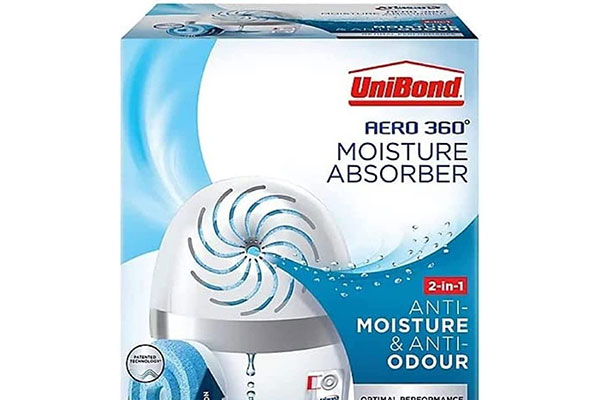Oral health is intricately linked to the environment we live in, including the air we breathe. Humidity levels can significantly impact our teeth and gums, and managing these levels using humidifiers and dehumidifiers can play a crucial role in maintaining oral health. This article delves into the connection between humidity and dental health, explaining how both humidifiers and dehumidifiers can be used to create an optimal environment for a healthy mouth.
Seeking Professional Advice
For personalized advice on managing humidity levels and maintaining optimal oral health, visit Glow Dental Clinic. The experienced team at Glow Dental Clinic can provide comprehensive care and recommendations tailored to your specific needs, ensuring your smile remains healthy and vibrant.
Understanding Humidity and Oral Health
Humidity refers to the amount of moisture in the air. The ideal indoor humidity level for comfort and health generally ranges between 30% and 50%. Both high and low humidity levels can have adverse effects on oral health, making it essential to maintain a balanced environment.
- Low Humidity and Oral HealthLow humidity levels can lead to dry mouth, a condition known as xerostomia. Saliva is essential for maintaining oral health as it helps neutralize acids, wash away food particles, and provide disease-fighting substances throughout the mouth. When the air is dry, saliva production can decrease, leading to several oral health issues:
- Increased Risk of Tooth Decay: Without adequate saliva, food particles and sugars remain on the teeth longer, providing a breeding ground for bacteria that cause tooth decay.
- Gum Disease: Dry mouth can contribute to gum disease by allowing plaque to build up more easily.
- Bad Breath: A lack of saliva can result in bad breath as bacteria accumulate in the mouth.
- Oral Discomfort: Dry mouth can cause discomfort, including a burning sensation, difficulty swallowing, and cracked lips.
- High Humidity and Oral HealthConversely, high humidity levels can also negatively impact oral health. Excess moisture in the air can promote the growth of mold, bacteria, and dust mites, which can lead to respiratory problems and allergies. Additionally, high humidity can affect oral health in the following ways:
- Mold Growth: Mold can contribute to oral infections, especially in individuals with weakened immune systems.
- Allergies: Increased allergens due to high humidity can cause inflammation and other issues that indirectly affect oral health.
Using Humidifiers for Oral Health
Humidifiers are devices that add moisture to the air, which can be beneficial in dry environments, especially during winter months when indoor heating systems can significantly reduce humidity levels. Here’s how using a humidifier can benefit oral health:
- Preventing Dry Mouth: By maintaining optimal humidity levels, humidifiers can help ensure adequate saliva production, reducing the risk of dry mouth and its associated complications.
- Comfort and Healing: Humidified air can soothe oral tissues, making it easier for the mouth to heal from injuries or infections.
- Improving Sleep: Humidifiers can help reduce snoring and sleep apnea symptoms, conditions that are often associated with dry mouth.
Using Dehumidifiers for Oral Health
Dehumidifiers remove excess moisture from the air, which can be crucial in areas with high humidity levels. Here’s how using a dehumidifier can benefit oral health:
- Reducing Mold and Bacteria Growth: By lowering humidity, dehumidifiers can prevent the growth of mold and bacteria, reducing the risk of infections that can impact oral health.
- Improving Respiratory Health: Dehumidifiers can alleviate respiratory issues caused by high humidity, which can indirectly benefit oral health by reducing inflammation and infections.
- Allergy Relief: By reducing allergens in the air, dehumidifiers can help prevent oral discomfort caused by allergies.
Maintaining Optimal Humidity Levels
Achieving the right balance of humidity is key to maintaining oral health. Here are some tips for managing indoor humidity:
- Monitor Humidity Levels: Use a hygrometer to regularly check indoor humidity levels, ensuring they stay within the optimal range of 30% to 50%.
- Use Humidifiers and Dehumidifiers Appropriately: Use a humidifier in dry conditions and a dehumidifier in overly humid conditions to maintain a balanced environment.
- Regular Maintenance: Clean and maintain your humidifier and dehumidifier according to the manufacturer’s instructions to prevent the growth of mold and bacteria.
- Ventilation: Ensure proper ventilation in your home to help regulate humidity levels naturally.
Conclusion
Maintaining the right humidity levels in your home is crucial for oral health. Both humidifiers and dehumidifiers play essential roles in creating an optimal environment that supports saliva production, reduces the risk of infections, and promotes overall well-being. By understanding the impact of humidity on oral health and using these devices appropriately, you can protect your teeth and gums, ensuring a healthier smile.







